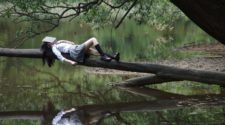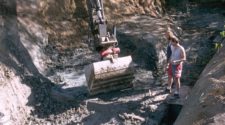Forensic scientist Eric Carita dispels a few popular myths about forensic science and describes how he came to find (and love) his profession. Narrator: Crimes are solved by examining clues and developing evidence. On TV, it’s all glamor, in real life, a forensic investigator like Eric Carita will tell you it takes patience and creativity.
Eric: My name is Eric Carita, I’m a forensic scientist and I process DNA evidence in criminal investigations. We apply the aspects of science with law. Every case is a puzzle, every case has a number of pieces you need to put together. Everytime you touch something, you’re transferring your genetic material to that object. What we do is look for evidence of possible DNA to either clothing or a knife, some type of DNA transfer. We then remove that DNA from that piece of evidence, process it, then make comparisons.
Eric: A lot of the misconception is that forensic science is exactly like CSI, what you’re gonna see on TV, and its nowhere near that. You have your law enforcement, which will do a lot of the processing of the crime scene, the collecting of the evidence, and then you have your scientists: there’s firearms examiners, there’s latent print examiners, there’s DNA examiners, and we stay within our niche. We are absolutely the unbiased individuals within the process, there is no “we believe an individual did it” and what it comes down to is, is the science good? The people of the state are relying on you to process evidence accurately and in an ethical manner, so later when you testify, you’re testifying on behalf of science and the evidence.
Eric: In high school especially science was never something I was interested in. I had no intention whatsoever, even after graduating from high school, to go to college. I went and worked in a mill for a couple years, and then I decided that I wanted to further my education, see where it could take me. Then I took an internship up at the Connecticut Forensic Lab and then from there I knew, there was absolutely nowhere else I want to be but here. You’re constantly learning every single day through either a new piece of evidence or interaction with your colleagues. We’ll have to call the submitting agency and let them know and they can take it from there. You need to be able to communicate all the information pertaining to any one particular case with each other so can get a better understanding of the case as a whole.
Eric: The most exciting aspect to the job is that you never know what type of cases iare gonna come in, how high profile the case is going to be. I never thought I’d ever have a job where I wake up in the morning and look in the mirror and say, “I can not wait to work, I can not wait to get to work,” it’s that exciting.










